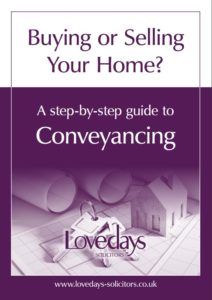- Home
- Personal Services
- Advice for Employees
- Conveyancing
- Dispute Resolution
- Boundary Disputes
- Dealing with Rent Arrears
- Japanese Knotweed Claims
- Landlord and Tenant Disputes
- Landlord Harassment & Illegal Eviction
- Negligence Claims Against Builders & Developers
- New Build Property Disputes
- Noisy Neighbour Disputes
- Personal Debt Collection
- Property Misrepresentations Claims
- Rights of Way Disputes
- Section 21 No Fault Evictions
- TOLOTA Claims
- Tree & Hedge Neighbour Disputes
- Divorce and Separation
- Family Law
- Lasting Power of Attorney
- Licensing
- Probate Law
- Trusts
- Wills
- Business Services
- Reviews
- Make An Enquiry
- Cost and Service Information
- About Us
- Contact Us
Estate Planning Solicitors
None of us like to think about dying, however, it is sometimes necessary when it comes to planning what you would like to happen to your assets after your death. This is known as estate planning and it can be as important as making a Will, as it is designed to make the lives of your executors and your loved ones a lot easier, whilst protecting your estate for those you want to leave it to.
There are many things that you need to consider when you are estate planning, including Inheritance Tax, and so it is important that you seek professional advice in order to make sure that you have covered everything sufficiently.
At Lovedays Solicitors, we have a team of experts on hand who can help to make sure you have thought about everything and put plans in place that will work for your beneficiaries as well as yourself.
Understanding Estate Planning
What is Estate Planning?
Estate planning is a way of setting out how you would like your assets to be managed or passed on when you die. It could not only outline who will be in receipt of what assets, but it can also ensure that the process of executing in the Will is much easier and that you have taken Inheritance Tax into account. Your estate planning can take many different forms, including writing a Will, setting up trusts and planning for your tax bill.
By taking the time to understand all of these elements and the possible implications of how you wish to distribute them, you can understand what hurdles might be faced and can put plans in place to overcome them. This means that your assets will be distributed in the way that you intended, and any tax liabilities can be kept to a minimum for all concerned.
You should make sure you take into consideration all of the assets that you own. This does not just apply to cash savings and property, but also any investments that might be in your name, as well as insurance policies and possessions and valuables such as cars or jewellery.
Why Estate Planning is Important
When someone passes away, it can be a distressing and emotional time for those who are left behind, so the last thing you want to do is leave them with the stress or complications of trying to manage your estate. By going through a process of estate planning before you die, you can take a lot of pressure off people during a very difficult time.
Estate planning is also very important in order to make sure that your estate is divided up as you intend, ensuring there is absolute clarity when it comes to your specific wishes. It gives you the ability to specify exactly how you would like your assets to be divided and can ensure that you are leaving the gift of financial security to those who mean the most to you.
Many estates are often subject to Inheritance Tax, which can come as a hefty blow once the will has been read and assets are being divided. When estate planning, you can take things like Inheritance Tax into account and put measures in place to help minimise this burden for your loved ones.
Not everyone wants to go down the route of having an estate plan, but it can save an awful lot of heartache in the future for your family. Not only will it help to reduce their stress, but it can also avoid any disputes or legal battles over your assets.
If you have not made the correct provisions for Inheritance Tax, you can also find that the estate you were planning to leave has a significant chunk taken out of it by HMRC. Estate planning can also cover what happens to you if you are incapacitated in some way.
Failing to do this means you will suffer a loss of control over your medical decisions as well as your financial ones, and you will be in the hands of someone else.
{quote}
Key Elements of Estate Planning
Wills
Most people write a Will in order to dictate what they want to happen to their belongings and estate upon their death. This will not only ensure that your assets are divided amongst your loved ones as you wish but will also state how your children will be looked after and who their legal guardians will be if they are still under the age of 18 when you pass away.
A Will should list who your beneficiaries are and how you want your assets to be divided amongst them and will also outline who should be the executor of your Will. In addition to this, it can include wishes relating to your funeral, and any trusts or charities that you wish to have included.
Your Will is an important legal document, so it must be put together properly. You should consult a legal expert when it comes to writing a Will, as anything that is incorrect or missing could lead to the Will being invalidated. You should also make sure that it is updated on a regular basis, especially if anyone within it dies or if you go through a divorce or significant change of circumstances.
Trusts
A trust is another way of managing your assets and is often included in estate planning. These are set up to control and protect any family assets or to take care of assets if the beneficiary is too young to handle their own affairs. A trust can also enable you to pass on assets whilst you are still alive or after you have died.
You have the opportunity to decide how the assets in a trust should be used and this will be outlined in a document called the Trust Deed. You can then appoint trustees who are the legal owners of the assets held in the trust.
They will deal with the assets according to your wishes and will manage the trust on a day-to-day basis, including paying any taxes that might be incurred. The beneficiaries of a trust might benefit from the income of the trust, the capital, or both.
A discretionary trust can be set up to allow the trustees to make certain decisions about how to use the income or capital from the trust. They will decide what gets paid out and who to, as well as how often the payments can be made.
These discretionary trusts are often put aside for future needs, such as a grandchild who might need more help than others later in their life. Alternatively, a living trust allows you to name beneficiaries and appoint a trustee who will manage your assets after your death.
Trusts are sometimes a way of managing the problem of Inheritance Tax, as if certain conditions are met, you no longer own the assets you have included in the trust and so they may not count towards your Inheritance Tax bill.
Inheritance Tax Planning
Inheritance Tax of 40% can be paid on your estate if it totals more than £325,000. This can take a significant sum out of what you were intending to leave to others, and so it can be important to plan how you will handle or minimise Inheritance Tax before you die. One way of reducing the amount of Inheritance Tax that may be paid from your estate is by gifting the home that you have lived in before you died to your children or grandchildren. This means they will not have to pay Inheritance Tax on the first £500,000.
There are also other financial gifts that you can leave your family in order to minimise the effect of Inheritance Tax. However, it is important to remember that any gifts given in the seven years prior to your death will still count towards your £325,000 Inheritance Tax allowance. You can also pass your estate to married or civil partners tax free.
It is not always straightforward working out what Inheritance Tax will be due and so it is important to seek the advice of a professional. By understanding the position of your estate in relation to Inheritance Tax, you can then make better decisions on how to minimise the burden for your family.
{quote}
Steps in the Estate Planning Process
Initial Consultation
If you have decided to go down the route of estate planning, then you need to visit a specialist estate planning solicitor such as those at Lovedays Solicitors. During the initial consultation a solicitor will listen carefully to your situation and what you are hoping to achieve.
This will involve considering all of your assets and how you want them to be divided after your death. Once your solicitor is aware of your wishes, they will be able to help you determine the best route to maximise what you can leave your loved ones and minimise the amount of tax that will need to be paid.
You should make sure that you look carefully at all of your personal circumstances and try to get up to date valuations of your more significant assets such as your property, your investments or any important possessions like jewellery. This will help to present a clearer picture of how much your estate is worth, and your solicitor can make more informed decisions about how your assets should be passed on.
Drafting Legal Documents
Once you and your solicitor have decided how your estate should be managed then it is important to put the correct legal documents in place. These will help to ensure that all of your wishes are carried out exactly as you want after your death, and all of them will be legally binding.
Your solicitor will be able to assist you in the process of drafting a Will as well as setting up any trusts or putting together other essential documents on your behalf. These will not only cover all of the important legal aspects, but they will also ensure that they have been signed and witnessed correctly and can verify that you were of sound mind and in full knowledge of what you have created.
Review and Update
The initial process of estate planning is very important, but it can soon become obsolete if you do not keep it up to date. It is therefore important to sit down with your solicitor from time to time to review your wishes and make sure that everything is still reflected correctly.
This is particularly important if you go through any major life changes. For example, if you get divorced, you may want to change who the beneficiaries of your estate will be. It may also be the case that someone included within the Will, whether they are a beneficiary or an executor, has passed away and you will need to name someone else.
You may also find that your financial position has changed, either for the better or the worse. This means that you might have to review what you were intending to leave and how that will be managed.
How Lovedays Solicitors Can Help
At Lovedays Solicitors, we are experts in estate planning. Our friendly and professional team have years of experience in putting together Wills, trusts and performing in-depth tax planning. We understand that this process can be complex, especially when trying to take Inheritance Tax into account, and so it is our specialist knowledge which will be incredibly important to you during the process.
We also have extensive expertise in handling more complex estates, including those with international elements. We are able to deal with any situation and provide a solution that works for you, your assets and your beneficiaries. No matter how complicated your situation might be, our friendly team will make sure that everything is explained to you thoroughly and clearly before setting any wheels in motion.
We can not only advise and guide you on the best routes for your estate, but we can also ensure that all of your important documentation is drafted legally and professionally. We will ensure that everything has been taken account of and is included in the right places so that your wishes will be fairly and accurately reflected.
Over the years we have worked with many different clients who have estates of all different sizes, so we have a unique understanding of your situation and can help to create the most effective plan for you.
Conclusion
Estate planning is a complex matter that needs to pull together all of the financial aspects of your life in order to decide what will happen to them upon your death. It is an extremely important process when it comes to ensuring the financial stability and security of your family and allows you to be confident that you have maximised what you are able to leave behind for your loved ones.
There can be a lot to take into account during this process and so it is important to not only understand how assets should be divided, but what the tax implications may be, what exemptions there are from this and how gifting and trusts may be able to reduce the tax burden on your estate. All of this needs a professional eye, and Lovedays Solicitors will be here to help you every step of the way. We can ensure that your estate plan reflects everything that you hoped for in the most efficient way possible.
{quote}
Frequently Asked Questions
You can name anyone as an executor of your Will or estate, as long as they are over the age of 18 and are someone that you trust.
There can be a range of documents included in your estate plan in order to accurately reflect your wishes. The most common of these will be your Will but you may also want to establish one or more trusts or include a power of attorney.
A Will is likely to form part of your estate plan, but it is not all of it. A good estate plan should encompass a number of additional actions, such as a review of your assets and how they are structured, tax planning, gifting and powers of attorney. These are often factors which are not covered in your Will and will need to be addressed separately.
Get Support Today
At Lovedays Solicitors, we are experts in estate planning. Our friendly and professional team have years of experience in putting together Wills, trusts and performing in-depth tax planning. We understand that this process can be complex, especially when trying to take Inheritance Tax into account, and so it is our specialist knowledge which will be incredibly important to you during the process.

Free Guide
If you don’t know your leasehold from your freehold, then get our Free Conveyancing Guide. It contains details about the steps you will need to take with any property transactions. The Guide giving you detailed guidance on what your lawyer will be doing for you and what to look out for.


Lovedays Solicitors, Brooke-Taylors Solicitors, Potter and Co Solicitors and Andrew Macbeth Cash and Co Solicitors are the trading names of Derbyshire Legal Services Limited which is a company registered in England and Wales under company number 08838592. Registered office Sherwood House, 1 Snitterton Road, Matlock, Derbyshire, DE4 3LZ.
Authorised and Regulated by the Solicitors Regulation Authority under SRA ID number 637916.
-
01629 56660
-
This email address is being protected from spambots. You need JavaScript enabled to view it. -
Sherwood House
1 Snitterton Road
Matlock
Derbyshire
DE4 3LZ
© Copyright 2019 Derbyshire Legal Services Limited | Website by WebWorks